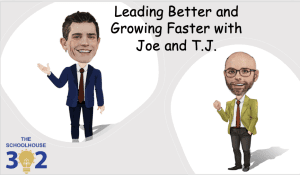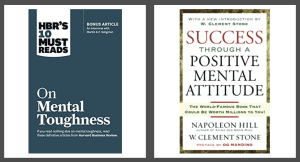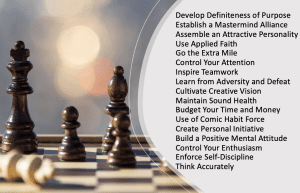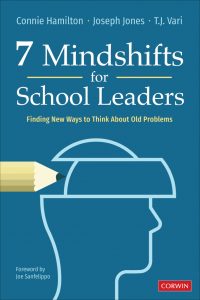
Struggling with School Initiatives? Get Them Right Once and For All–Leading Better and Growing Faster with Joe and T.J.
If something isn’t right within an initiative, it’s likely that it wasn’t right from the start.
~ Jim Marshall
About Jim Marshall
Jim Marshall’s life-long work lies at the intersection of people and the organizations in which they work—and optimizing the synergy that fertile convergence holds. A Professor of Educational Leadership at San Diego State University, his scholarship, teaching, and consulting combine our understanding of human performance and organization development to assess strengths, devise strategies, and improve even the most vexing of challenges.
With over 200 publications to his credit, Marshall’s scholarship encompasses a diverse range of works that include empirical research, program evaluation efforts, and policy development. His evaluation endeavors are particularly significant and include more than 250 individual studies of funded projects and program investments totaling over $120 million dollars.
He serves as a thought partner to leaders seeking to hasten the collective impact of their organization’s investments. From assessing strengths and needs to conceptualize strategy and program initiatives and then measuring return on investment, Marshall’s unique approach relies on a proven mix of assessment and evaluation, appreciative inquiry, and empathic understanding that predictably yields quantifiable results.
His book, Right from the Start: The Essential Guide to Implementing School Initiatives, summarizes lessons learned through the evaluation of hundreds of programs in both the public and private sectors.
What You’ll Find in this Educational Leadership Podcast Episode with Jim Marshall
Jim starts with his experience as the evaluator of initiatives and projects, which led him to write the book. He has been able to reflect on what school leaders could do differently at the start of initiatives, which would make all the difference in the long run.
Jim calls for careful and thoughtful planning for initiatives so that when we get to the implementation phase we end up with a more predictable result.
Joe asks about the balance between whether the initiative itself is the problem or the people who execute it. Don’t miss what Jim says about how people interface with the initiative.
You want to hear what Jim says about his motivation equation: motivation = value * convince. He gives credit to Vroom through his expectancy theory.
Jim argues that a “program” is like the tip of an iceberg while an “initiative” should be able to get to the deeper parts of the iceberg.
We ask Jim to talk about dos and don’ts. Here’s what he says:
- Do…try to understand the problem first. Talk to people to know more about what is going on. Don’t trust your own view as accurate of the current situation.
- Do…use your needs assessment to create awareness and buy-in.
- Do…make sure that the people can see themselves in the implementation and design.
- Do…make sure to create a program evaluation process. Jim says that you’re probably already doing this informally; just formalize it to analyze the data.
- Don’t…skip steps at the beginning of the planning phase or forget to evaluate the results.
- Don’t…forget to develop defined outcomes.
Jim follows Michael Fullan for knowledge and inspiration. He mentions Change Forces as a favorite.
Jim recommends that we start by looking for bright spots in our work. He calls it “appreciative inquiry.” We typically look for things to fix, and that’s not always the best way to evaluate what works and what doesn’t.
Jim wants to know why there’s not more knowledge and shared best practices among schools and outside organizations. Don’t miss what he says about the dissemination of best practices.
He talks about his continued strategy for growth. He runs through the use of performance engineering.
Jim used to think of evaluation as “gap analysis,” but now he looks for strengths first.
Jim ends by saying that this work doesn’t have to be complicated. We couldn’t agree more!
The Leading Better & Growing Faster with Joe & T.J. Show
Let us know if there’s a guest who you want us to have on the show by leaving a comment below or by contacting us at [email protected]. And don’t miss our leadership content updates every week by subscribing to the site.
We can’t wait to hear from you.








 7 Mindshifts for School Leaders: Finding New Ways to Think About Old Problems.
7 Mindshifts for School Leaders: Finding New Ways to Think About Old Problems. 


